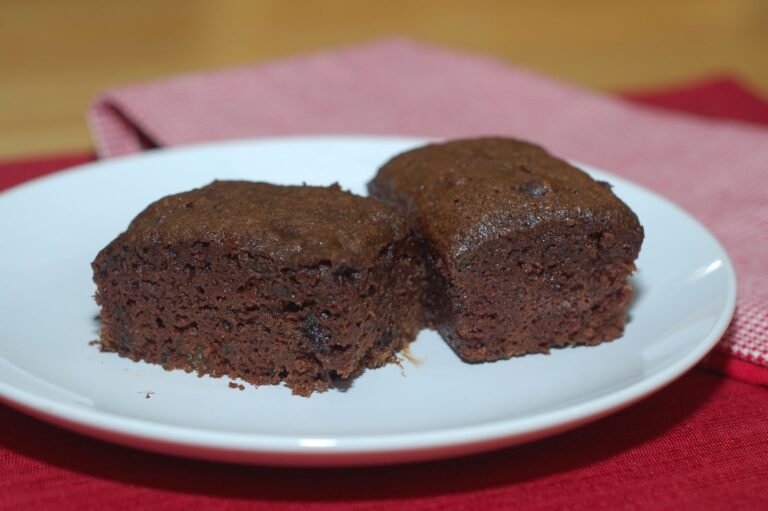Is Lemon Juice Acidic? A Guide to Its Effects and Benefits

Lemon juice, known for its bold, tangy flavor, is a staple in kitchens and health remedies worldwide. From drinks to marinades, its versatility is unmatched. But one common question arises: Is lemon juice acidic?
The answer is straightforward—yes, lemon juice is highly acidic. With a pH ranging between 2 and 3, lemon juice is one of the most acidic natural beverages. While this acidity has its advantages, such as antimicrobial properties, it also poses challenges for people prone to acid reflux or sensitive stomachs.
This guide dives into what makes lemon juice acidic, its effects on digestion, and how you can enjoy it while managing potential issues like acid reflux. Read on to uncover the truth about this zesty beverage.
What Makes Lemon Juice Acidic?
Lemon juice’s unmistakable tanginess stems from its high concentration of citric acid, a naturally occurring compound abundant in lemons. This citric acid is what places lemon juice among the most acidic substances commonly consumed. With a pH value ranging from 2 to 3, lemon juice is far more acidic than most foods and drinks, which explains its sharp flavor and versatile uses in cooking, cleaning, and health remedies.
Understanding the pH of Lemon Juice
The pH scale measures how acidic or alkaline a substance is, with values below 7 indicating acidity and values above 7 indicating alkalinity. Lemon juice’s pH of 2 to 3 makes it “extremely acidic,” a classification that highlights its potency. This acidity is not just a defining feature of its taste—it also contributes to its ability to preserve food and inhibit bacterial growth, making it both flavorful and functional.
The Role of Citric Acid in Lemon Juice
At the heart of lemon juice’s acidity is citric acid, a powerful organic acid that plays multiple roles in its unique characteristics and benefits. Here’s how citric acid contributes to lemon juice’s properties:
- Flavor: The tangy, mouth-puckering sourness that defines lemons is directly due to citric acid. It’s the reason lemons stand out among other citrus fruits as a bold flavoring agent.
- Preservation: Thanks to its acidic nature, citric acid prevents the growth of harmful bacteria and fungi. This makes lemon juice a natural preservative, ideal for extending the shelf life of foods and beverages.
- Digestion Support: Small amounts of citric acid stimulate saliva production, which helps break down food in the mouth and initiates a smoother digestive process. Additionally, it promotes the release of digestive enzymes, aiding in better nutrient absorption.
These qualities make citric acid a multi-functional compound that elevates lemon juice from a simple ingredient to a powerhouse of flavor and functionality. Whether you’re squeezing it into water, using it as a marinade, or enjoying it as a natural remedy, the citric acid in lemon juice is the secret behind its zing and versatility.
Lemon Juice vs. Other Acidic Juices
When compared to other fruit juices, lemon juice is among the most acidic. Here’s a comparison of pH levels:
| Juice | pH Level | Acidity Classification |
| Lemon Juice | 2.0 – 3.0 | Extremely Acidic |
| Cranberry Juice | 2.3 – 2.5 | Extremely Acidic |
| Pineapple Juice | 3.2 – 4.0 | Highly Acidic |
| Orange Juice | 3.3 – 4.2 | Highly Acidic |
| Apple Juice | 3.3 – 4.0 | Highly Acidic |
This table highlights lemon juice’s position as one of the most acidic juices. While this acidity offers antimicrobial benefits, it can irritate sensitive stomachs or worsen acid reflux symptoms.
Is Lemon Juice Acidic or Alkaline?
Although lemon juice is acidic outside the body, some claim it has an alkalizing effect after metabolism. This belief stems from the idea that lemon juice leaves an “alkaline ash” after digestion. However, this doesn’t negate its initial acidity.
Lemon Juice and Its Impact on Digestion
Digestive Benefits
In small amounts, lemon juice can support digestion by stimulating bile production, which helps break down fats. It may also relieve mild indigestion, bloating, or nausea when diluted.
Challenges for Sensitive Stomachs
For individuals with acid reflux or GERD, lemon juice’s high acidity can trigger symptoms like heartburn and regurgitation. Drinking it undiluted on an empty stomach is particularly risky.
Author Tip: Is Lemonade Good for You?
Does Lemon Juice Help Acid Reflux?
The relationship between lemon juice and acid reflux is complex. While its acidity may exacerbate reflux symptoms for some, others believe diluted lemon juice can have alkalizing effects.
Why Lemon Juice May Trigger Reflux
- Increased Stomach Acid: Lemon juice stimulates stomach acid, which can worsen reflux.
- Irritation: Its sourness may aggravate an inflamed esophagus.
Potential Benefits
- Digestive Stimulation: Lemon juice promotes bile production, aiding digestion.
- Mild Alkalizing Effect: Some people believe diluted lemon juice may counteract acidity, though evidence is limited.
Can Lemon Juice Be Dangerous?
Despite being a strong acid, lemon juice is safe for most people when consumed in moderation. However, excessive consumption can:
- Irritate the stomach lining.
- Weaken tooth enamel due to prolonged exposure to acidity.
- Exacerbate acid reflux symptoms.
How to Safely Consume Lemon Juice
To enjoy the benefits of lemon juice without discomfort:
- Dilute It: Mix one part lemon juice with three parts water to reduce acidity.
- Pair with Non-Acidic Foods: Eating lemon juice with meals can buffer its effects.
- Limit Portions: Avoid consuming large amounts at once.
- Use Fresh Lemon Juice: Avoid processed lemon juice with added preservatives.
Debunking the Lemon Alkaline Myth
The idea that lemons are “alkaline” has gained traction, especially in health and wellness communities promoting alkaline diets. These diets often claim that lemons and lemon juice, despite being highly acidic in nature, have an alkalizing effect on the body after digestion. While there’s some truth to this, it’s important to understand the nuance and debunk the oversimplified notion.
Why Are Lemons Considered Alkaline?
This claim stems from the “alkaline ash” hypothesis. According to this theory, when lemons are metabolized, they leave behind an alkaline residue (or “ash”). This is because the minerals in lemons, such as potassium, magnesium, and calcium, are considered alkalizing. These minerals may contribute to a slight increase in urinary pH, making the body temporarily excrete less acidic urine.
What’s Misleading About the Claim?
- Initial Acidity of Lemon Juice: Lemon juice is acidic, with a pH between 2 and 3. This acidity is very real and tangible when consumed, impacting the stomach and digestive system immediately.
- Body’s pH Regulation: The body’s internal pH, especially that of the blood, is tightly regulated and does not significantly change due to the consumption of specific foods or beverages. The idea that eating lemons can “alkalize” your body is a misunderstanding of how homeostasis works.
- Focus on Urinary pH: While lemons might affect the pH of your urine slightly, this does not translate to altering the overall pH of your body. Urinary pH is not an indicator of overall health or systemic pH levels.
The Reality of Lemon Juice and pH Balance
While the alkaline residue theory has some scientific basis, it’s not a reason to classify lemons as truly “alkaline.” Instead, they are acidic foods that may have certain alkalizing effects after digestion, but this does not significantly impact the body’s overall pH balance. It’s crucial to view lemons as beneficial for their nutritional properties rather than for mythical alkalizing capabilities.
The Role of Lemon Juice in Gastric Health
Lemon juice can play a dual role in gastric health, offering benefits for some people while posing risks for others. Its impact depends on factors like individual tolerance, the method of consumption, and the presence of pre-existing digestive issues.
How Lemon Juice Benefits Gastric Health
- Stimulating Digestive Enzymes: Lemon juice can promote the production of bile, a digestive fluid essential for breaking down fats. This makes it beneficial for improving nutrient absorption and easing digestion, especially when consumed in moderation and as part of a balanced diet.
- Reducing Mild Bloating or Discomfort: Some people find that diluted lemon juice relieves bloating or indigestion. Its mild diuretic properties may also reduce water retention and improve overall digestive comfort.
- Encouraging Hydration: Adding lemon juice to water can make it more palatable, encouraging hydration. Proper hydration is key to maintaining smooth digestion and a healthy stomach lining.
The Risks of Lemon Juice for Gastric Health
- Overconsumption: Drinking too much lemon juice, particularly undiluted, can irritate the stomach lining. Its high acidity may exacerbate conditions like gastritis or cause discomfort in individuals with sensitive stomachs.
- Worsening Acid Reflux: For people with GERD (gastroesophageal reflux disease) or acid reflux, lemon juice can trigger symptoms like heartburn, regurgitation, and esophageal irritation.
- Impact on Tooth Enamel: Frequent exposure to lemon juice’s acidity can erode tooth enamel, especially if consumed undiluted or in large quantities over time.
How to Enjoy Lemon Juice Safely?
- Dilution: Mixing lemon juice with water reduces its acidity, making it gentler on the stomach.
- Moderation: Small amounts of lemon juice can be beneficial, but overdoing it might cause more harm than good.
- Timing: Avoid consuming lemon juice on an empty stomach if you’re prone to acid reflux or gastric discomfort.
Lemon juice can be a valuable addition to a healthy diet when consumed wisely. Understanding its effects on gastric health can help you harness its benefits while avoiding potential drawbacks.
How to Make Alkaline Water with Lemon?
To create an alkaline drink, add a few lemon slices to water. While this won’t significantly change the pH of your blood, it can make water taste more refreshing and encourage hydration.
Why Lemons Are Considered Alkaline in Diets?
Lemons are classified as “alkaline-forming” in some diets because their metabolic byproducts are alkaline. However, this doesn’t change their acidic nature when consumed.
FAQs
1. Is lemon juice acidic or alkaline?
Lemon juice is highly acidic with a pH between 2 and 3. However, after digestion, it may leave an alkaline residue, though its acidic nature is what you taste and experience.
2. Does lemon juice worsen acid reflux?
For many people, yes. Lemon juice’s acidity can increase stomach acid, potentially triggering heartburn and reflux symptoms. Always dilute it and consume cautiously if you’re prone to reflux.
3. Can I drink lemon water if I have acid reflux?
Diluted lemon water may be tolerable for some, as it is less harsh than pure lemon juice. Start with small amounts and monitor your symptoms. Always consult a healthcare provider for personalized advice.
4. Why is lemon juice considered alkalizing despite its acidity?
This belief comes from the “alkaline ash” theory, which suggests lemon juice leaves an alkaline residue after digestion. However, this effect is minimal and doesn’t negate its initial acidic impact.
5. Are there alternatives to lemon juice for people with acid reflux?
Yes! Try gentler options like aloe vera juice, coconut water, or chamomile tea, which are less likely to irritate the stomach.
Conclusion
Lemon juice is undeniably acidic, with a pH between 2 and 3. While it offers several health benefits, such as aiding digestion and acting as a natural preservative, its high acidity can pose challenges for those with sensitive stomachs or acid reflux. By diluting lemon juice, pairing it with food, and consuming it in moderation, you can enjoy its zesty flavor without discomfort. Understanding its effects helps you make informed choices about incorporating lemon juice into your diet.
Subscribe for New Racipies
Get mental health tips, updates, and resources delivered to your inbox.
Chocolate Chip Zucchini Brownies

I finally got around to making the Chocolate Chip Zucchini Brownies. The house smells so chocolaty. Who would have thought to put zucchini in a brownie. Thanks www.healthyfoodforliving.com. They really are divine. They are moist, chocolaty, with a hint of zucchini. There are not many ingredients and the recipe is super easy. Mine came out a little more cake like then what was pictured on there site, but I used the same ingredients. Perhaps it is the special brownie pan I use. It’s that one you see on TV that cuts the brownies as they bake. My mother bought it for me on QVC (her favorite channel), so I tried it and have loved it since. It really does bake the brownies a lot better than a pyrex glass dish and I don’t destroy them trying to cut them. They come out cut and looking pretty! Here is the recipe for anyone who has extra zucchini laying around:
Chocolate Chip Zucchini Brownies
Yield: 16 brownies
Cook Time: 25-30 minutes
Ingredients:
1 1/2 cups granulated sugar
1/2 cup canola oil
2 cups all purpose flour
1/4 cup cocoa
2 cups shredded zucchini
2 teaspoons vanilla extract
1 teaspoon salt
1 1/2 teaspoons baking soda
1 cup chocolate chips
Directions:
1. Preheat oven to 350 degrees F. Grease an 8 x 11 baking pan with cooking spray, set aside.
2. In a stand mixer, combine sugar, canola oil, and flour, combine until mixture resembles wet sand. While mixing, on low, add cocoa, zucchini, vanilla extract, salt and baking soda. Mix until well combined. Stir in the chocolate chips.
3. Pour brownie batter into prepared pan and bake for 25-30 minutes or until a toothpick comes out clean and the brownies are set.
4. Cool on a wire rack. Cut brownies into squares and serve.
Recipe adapted from healthyfoodforliving
Subscribe for New Racipies
Get mental health tips, updates, and resources delivered to your inbox.










